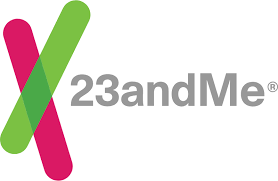Two St. Albert residents are among thousands of Canadians reconsidering how their genetic information is stored after DNA testing company 23andMe filed for bankruptcy in the U.S.
McKenna Swanson, a premium 23andMe user since 2019, acknowledges that submitting personal information has always carried a risk. As a premium user, she pays a yearly fee to access additional features, such as personalized health reports and advanced ancestry tools.
"Anytime you sign up for any form of third-party company, whether or not you're dealing with DNA and sensitive genetic data, there is always a risk," she said.
Kris Abramowski said he was initially comfortable with sending in his DNA a few years ago, but the bankruptcy changed that.
"I wouldn't be surprised if they had already sold it, you know, if not once, maybe even a few times," he said. "But I think that's kind of a risk I was comfortable with."
He added that while his data was with the company, what they did with it was out of his hands. But with bankruptcy looming, he decided the risk outweighed the benefit. He recently downloaded his reports and deleted his account.
"There's no value with it being on the site anymore, especially now that the site's going away," he said. "They don't make the process easy. I had to find the Reddit thread about how to permanently delete your data because they have it absolutely buried within the site."
The situation has prompted Alberta’s Information and Privacy Commissioner, Diane McLeod, to issue a public warning encouraging Albertans to protect their personal data. She noted that 23andMe is reportedly planning to sell all its assets—including personal data and DNA samples submitted by users.
"It is uncertain who will become the new owner of 23andMe and its assets, and what their intentions may be for the personal information obtained," McLeod said in a press release.
Swanson, who recently renewed her subscription, says she plans to get what she can from the service before deleting her account.
"I will likely request that 23andMe destroy the genetic testing information that they have on site because I had elected to have it stored," she said. "But I just don't think that a data deletion will go as far as people think it will."
23andMe, known for providing ancestry and health reports based on saliva samples, faced a major breach in 2023 when hackers listed millions of user profiles for sale. Swanson says she isn't too concerned about her personal information being sold now, as she believes it was already compromised.
McLeod is encouraging users to take advantage of several protective options, including adjusting privacy settings to opt out of research, data sharing or biobanking. Users can also delete their accounts and genetic data, and those with physical DNA samples at 23andMe can request that the sample be destroyed.
"In this type of situation, it is important for people to know that they have a number of options to protect any personal information held by 23andMe," she said.




